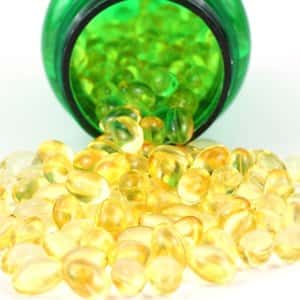
Vitamin D is essential for strong bones. When young children don’t get enough vitamin D, they can develop a bone deformity called rickets. This nutrient acts as a hormone in the body. It is vital for hundreds of activities, including calcium regulation. Probably that is why doctors have been urging older women for decades to take vitamin D along with calcium supplements. They thought this regimen would keep bones strong. But do vitamin D supplements make for stronger bones? A proposed new recommendation from the United States Preventive Services Task Force (USPSTF) is calling that idea into question.
What Will the USPSTF Say About Supplements?
A draft review of the evidence from randomized controlled trials suggests that the advice to take calcium supplements might not have been supported by good data.
The task force offered this preliminary conclusion:
“Among community-dwelling populations of postmenopausal women and older men without known vitamin D deficiency, bone conditions, or prior fracture, the evidence suggests no reduction in fractures, falls, or mortality from supplementation with vitamin D (with or without calcium) compared with placebo.”
The draft will be available for public comment through January 21, 2025.
Studies Don’t Support Stronger Bones from Vitamin D Supplements:
You may be aware that previous analyses of the research on this topic reached a similar conclusion. Millions of people take both vitamin D and calcium supplements in an effort to maintain stronger bones as they age.
But six years ago, a meta-analysis of 81 randomized controlled trials involving over 50,000 participants concluded “that vitamin D supplementation does not prevent fractures or falls, or have clinically meaningful effects on bone mineral density” (The Lancet Diabetes & Endocrinology, online Oct. 4, 2018 This was true even in studies that used doses of 800 IU vitamin D daily.
Can supplements adequately replace the vitamin D that human skin makes when it is exposed to sunshine? We don’t have studies to answer that question.
Task Force Didn’t Recommend Vitamin D for Stronger Bones:
More than a decade ago, the US Preventive Services Task Force issued confusing guidelines on the topic of vitamin D supplements for stronger bones. In 2012, the USPSTF advised postmenopausal women that taking calcium and vitamin D wouldn’t prevent broken bones after all. Apparently, the current research is no more convincing now than it was back then.
Studies showed that 400 IU of vitamin D and 1000 mg of calcium daily did not prevent osteoporotic fractures. Such supplements might increase the risk of kidney stones, however.
Some research suggested that 400 IU of vitamin D as a daily supplement is not enough to achieve optimal blood levels of circulating 25-hydroxyvitamin D (Nutrients, Dec. 2015). Individuals vary greatly in their response to vitamin D supplements. Consequently, the dose might need to be personalized to achieve 25-hydroxyvitamin D levels over 30 ng/ml.
Karen commented:
“400 IU of D3, while it may be the RDA, won’t move the needle. The relevant measure that needs to be reported in this study is, what was the blood level of D3 of the participants who suffered broken bones? My doctor believes it takes +-1000 IU of D3 to move blood level by 10 ng, more if you’re fat.”
Preventing Bone Loss:
What can you do to keep your bones strong? If you get calcium from your diet and vitamin D from moderate sun exposure, you should have the nutritional foundation for bone health. Bones also respond to regular exercise such as running, walking, dancing or playing tennis.
You can learn more in our Guide to Vitamin D and Optimal Health tells more about sources and doses of this very important vitamin.
How Can You Maintain Stronger Bones?
The USPSTF did not compare supplements and osteoporosis drugs. When possible, preventing bone loss with weight-bearing exercise, a diet rich in calcium from a variety of sources including green leafy vegetables (which also supply vitamin K, magnesium and other nutrients vital for stronger bones) and vitamin D from the sun or from fatty fish may be the best approach. Our interview (Show 752) with Michael Castleman, co-author of Building Bone Vitality: A Revolutionary Diet Plan to Prevent Bone Loss and Reverse Osteoporosis, and Walter Willett, MD, DrPH, Chairman of Nutrition at Harvard School of Public Health, may also be of interest.

